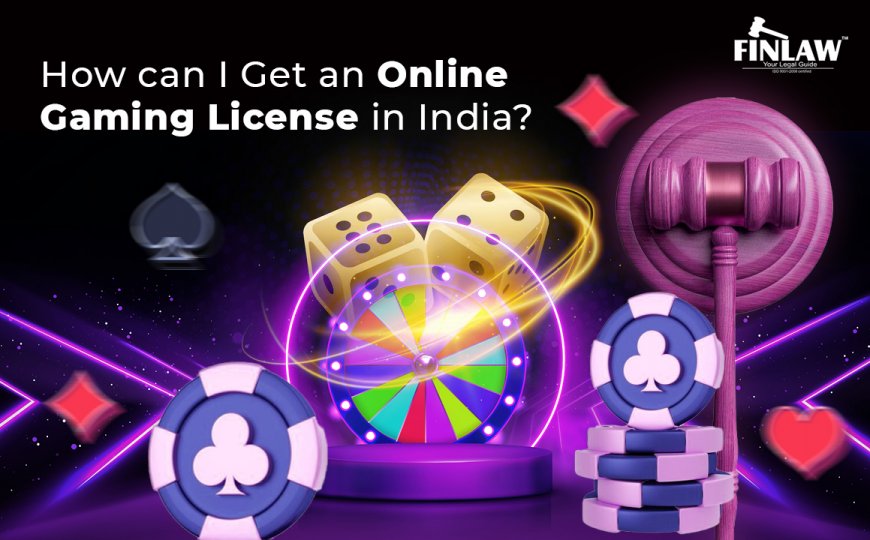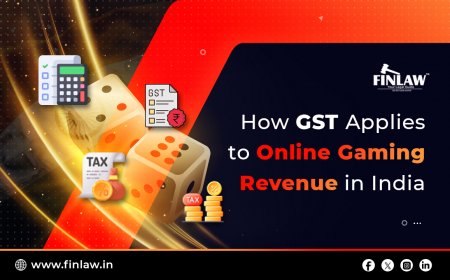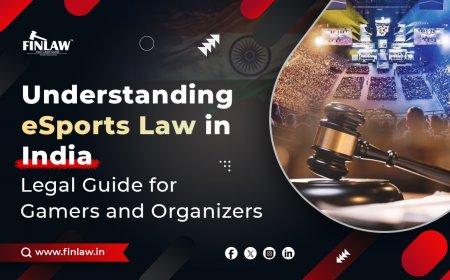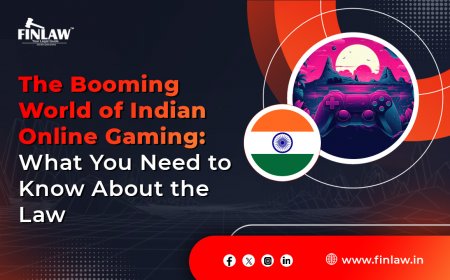How Can I Get an Online Gaming License in India?
Learn how to get an online gaming license in India. Explore legal requirements, state-wise options, and step-by-step licensing process.

India’s digital gaming industry is booming—with over 500 million gamers and revenues expected to cross ₹38,000 crore by 2025. Whether you're planning to launch a fantasy sports platform, poker app, or e-sports tournament, there’s one critical question you must address:
How can I get an online gaming license in India?
The answer depends on your business model, the type of game you offer, and the legal landscape in your target states. In this comprehensive guide, we’ll walk you through everything you need to know—from understanding game classifications to applying for the right license, meeting compliance requirements, and avoiding legal risks.
Why an Online Gaming License Is Essential in India
An online gaming license is not optional—it’s a legal requirement for most platforms. Here’s why you need one:
-
Legal compliance with state and central rules
-
Investor and user trust
-
Banking and payment gateway integration
-
Brand reputation and credibility
-
Avoidance of penalties or bans
Operating without a valid license can lead to serious consequences—including website takedowns, monetary fines, or even imprisonment under gambling laws.
Legal Classification: Game of Skill vs. Game of Chance
Understanding this distinction is crucial before applying for a license:
Game of Skill
A game where the outcome depends predominantly on player knowledge, decision-making, and expertise. Examples include:
-
Fantasy sports (Dream11, My11Circle)
-
Rummy
-
Poker (in some states)
-
Chess and Bridge
-
E-sports and trivia
Legal in most Indian states
Game of Chance
A game where luck is the primary factor in determining the outcome, such as:
-
Casino-style games (roulette, blackjack, slots)
-
Bingo and lotteries
-
Betting and wagering
Banned in most states unless explicitly licensed (like in Meghalaya)
Who Regulates Online Gaming in India?
There is no national gaming commission in India. Instead, regulations vary by state. However, new developments in central-level regulation are emerging:
Central Developments (As of 2024):
-
Ministry of Electronics and IT (MeitY) is working on national guidelines.
-
Self-Regulatory Bodies (SRBs) are expected to govern content moderation and player safety.
-
Under the IT Rules 2021, platforms must:
-
Display a random number generation (RNG) certificate.
-
Offer grievance redressal.
-
Perform user KYC.
Although not mandatory today, central guidelines are likely to shape licensing in the near future.
Key States Offering Online Gaming Licenses
1. Nagaland (Most Popular for Pan-India Operations)
Law: Nagaland Prohibition of Gambling and Promotion and Regulation of Online Games of Skill Act, 2016
Games Covered:
-
Poker
-
Rummy
-
Fantasy sports
-
Quiz, Sudoku, virtual sports
License Details:
-
License Duration: 5 years
-
Application Fee: ₹50,000
-
Annual Fee: ₹10–25 lakh
-
Royalty: 0.5% of gross revenue
-
Valid Pan-India (for skill games)
Ideal for startups seeking legal cover nationwide.
2. Sikkim (Geographically Restricted)
Law: Sikkim Online Gaming (Regulation) Act, 2008
Games Covered:
-
Casino-style games: roulette, blackjack, poker
Limitations:
-
Geographically restricted to users within Sikkim
-
Internet gaming cafes require licensing from local authorities
Best suited for Sikkim-based physical or local online operations.
3. Meghalaya (Covers Both Skill and Chance Games)
Law: Meghalaya Regulation of Gaming Act, 2021
Features:
-
Permits both skill and chance games
-
Allows licensing of betting and gambling operators
-
Mandatory license even for promotional contests involving prizes
Ideal for businesses targeting North-East India and wanting broader game types.
How to Get an Online Gaming License in India: Step-by-Step
Step 1: Incorporate a Legal Entity
-
Register a Private Limited Company or LLP in India.
-
Must have Indian directors and comply with FDI restrictions.
Step 2: Draft Your Business Model
Include:
-
Types of games offered
-
Revenue model (entry fees, subscription, in-app)
-
Target states and age group
-
Fair play and anti-fraud mechanisms
Step 3: Choose Licensing State Based on Game Type
-
Skill-based games: Nagaland or Meghalaya
-
Chance-based games: Only Meghalaya or Sikkim (if within state borders)
Step 4: Prepare Documentation
Common requirements include:
-
Company registration certificate
-
Directors’ ID and address proofs
-
Tax registrations (PAN, GST)
-
Game engine details and algorithms
-
RNG and fairness audit certificates
-
Data protection and AML policy documents
Step 5: Submit Application and Pay Fees
-
File with the respective state gaming authority
-
Include application form, fees, and documentation
-
Await preliminary approval
Step 6: Compliance Verification and Approval
Authorities will evaluate:
-
Technical backend
-
KYC integration
-
Responsible gaming measures
-
Financial background
If approved, the gaming license will be issued for a specified period (usually 1–5 years).
What If You Operate Without a License?
Operating without a valid gaming license can attract serious penalties:
|
Offense |
Penalty |
|
Offering unlicensed games |
Up to ₹1 lakh fine or imprisonment (state-specific) |
|
Misleading ads on real money games |
ASCI takedowns, ad bans, and penalties |
|
Non-compliance with IT rules |
Platform ban, server takedowns by MeitY |
Avoid this by acquiring the necessary gaming license and remaining fully compliant.
Licensing for Fantasy Sports Platforms in India
Fantasy sports like cricket and football leagues are considered games of skill by various courts, including the Supreme Court. Leading platforms like Dream11 operate under:
-
Private legal opinions
-
State court validations
-
Self-regulatory bodies like FIFS (Federation of Indian Fantasy Sports)
Although a central fantasy sports license doesn’t yet exist, platforms often get a Nagaland gaming license or build robust compliance frameworks to avoid bans.
Key Compliance Checklist for Gaming Operators
To run a legally secure and trustworthy gaming platform in India, ensure:
-
RNG Certification (Random Number Generation audit)
-
Age-gating and Responsible Gaming features
-
28% GST compliance under new gaming tax rules (2023 update)
-
KYC and AML policy implementation
-
ASCI-compliant advertisements
-
Platform grievance redressal officer
Frequently Asked Questions (FAQs)
1. Is there a single national license for online gaming in India?
No. Licensing is currently state-specific. Nagaland and Meghalaya offer the most viable licenses for pan-India operations.
2. Is a license required for e-sports or trivia platforms?
If real money is involved (entry fees or rewards), you should obtain a license or legal opinion for compliance, even if it's a skill-based game.
3. Can a foreign company get an online gaming license in India?
Yes, but only through an Indian subsidiary or joint venture with Indian majority control.
4. How long does the licensing process take?
Typically 3 to 6 months, depending on the state, documentation, and technical audits.
5. What is the tax rate on online gaming in India?
As of October 2023, 28% GST is levied on the full value of bets or contest entry amounts, not just the platform fee.
Conclusion: Building a Legally Compliant Gaming Venture in India
India’s online gaming sector is full of opportunity—but also subject to dynamic laws. Acquiring a valid gaming license shows that your platform is safe, legal, and ready for growth. Whether you're launching a poker app, fantasy cricket site, or trivia quiz app, it pays to stay on the right side of the law.
So, how can you get an online gaming license in India?
Choose the right state, align your game type with legal classifications, prepare strong documentation, and seek professional advice to ensure your application succeeds.
Need Help with Licensing?
Consider consulting gaming law professionals or licensing agencies to simplify your application process and ensure full legal compliance.
What's Your Reaction?



















